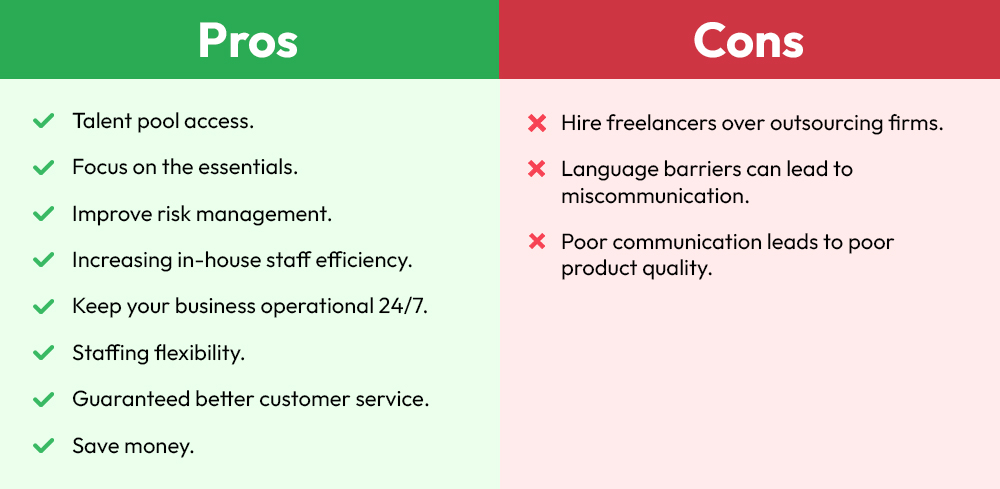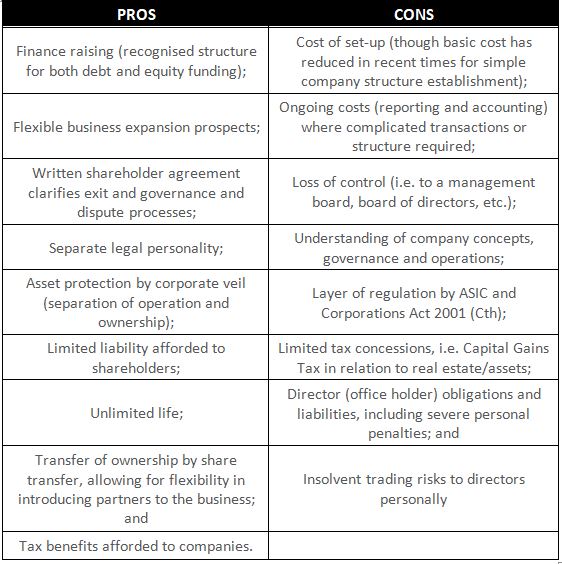Understanding the Pros and Cons of Running a Company
Starting and running a company is an exciting venture, but it also comes with its own set of challenges. Understanding the pros and cons of running a company is essential for entrepreneurs looking to navigate the complex world of business. This article delves into the advantages and disadvantages of owning and managing a business, providing insights on how to maximize success while mitigating risks.

The Pros of Running a Company
1. Control Over Your Destiny
One of the greatest advantages of owning a company is having complete control over your business decisions. As a business owner, you can shape the direction of your company based on your vision, values, and goals. This sense of autonomy can be incredibly empowering.
-
You can decide on products, services, and operational strategies that align with your values.
-
You’re in charge of hiring the right team and setting the company culture.
2. Financial Rewards
While there are risks involved, owning a successful company offers financial rewards that can significantly surpass a traditional paycheck. As your business grows, the potential for profits increases, allowing you to reinvest in your business or achieve personal financial goals.
-
Owners often benefit from increased profits and dividends.
-
In many cases, successful business owners achieve financial independence.
3. Personal Fulfillment
Running a company allows you to bring your ideas to life, creating products or services that solve real-world problems. Many entrepreneurs find personal fulfillment in knowing that their business makes a difference, whether through innovation or by serving a specific community.
-
You’ll experience a sense of pride as you watch your company grow.
-
The challenge of overcoming obstacles can be deeply rewarding.
4. Flexibility and Independence
Owning a business offers more flexibility compared to a traditional 9-to-5 job. As a business owner, you have the ability to set your own hours, work from anywhere, and focus on what truly matters to you.
-
Enjoy the ability to make work-life balance decisions.
-
You can pivot your business direction without corporate constraints.

The Cons of Running a Company
1. Financial Risk and Responsibility
While the financial rewards can be great, the risks are equally significant. Business owners are often personally liable for business debts, and there’s always a chance that the business may not be profitable.
-
The potential for losses can jeopardize both business and personal finances.
-
Managing cash flow is crucial to ensure the longevity of your business.
2. Long Working Hours and Stress
Running a business can be incredibly demanding, especially in the early stages. Entrepreneurs often find themselves working long hours, including evenings and weekends, to keep the business afloat. The stress of managing everything from sales to staffing can be overwhelming.
-
You may struggle to maintain work-life balance.
-
Business owners often experience burnout due to constant pressure and workload.
3. Uncertainty and Market Risks
The market is constantly changing, and external factors like economic downturns or shifts in consumer preferences can impact your company’s success. Business owners must navigate market risks and deal with uncertainty regarding long-term profitability.
-
Economic crises, such as recessions, can affect your business directly.
-
Staying adaptable and responsive to market changes is essential.
4. Lack of a Safety Net
Unlike employees who may have benefits such as health insurance and retirement plans, business owners often must fund these benefits themselves. Additionally, business owners don’t typically receive paid leave, and they may have to go without a salary during tough times.
-
Business owners are often solely responsible for their personal financial security.
-
The pressure to manage all aspects of the business with no fallback can be stressful.

How to Maximize the Pros and Minimize the Cons
1. Financial Planning and Risk Management
One of the key strategies for success in business is to develop a solid financial plan that includes risk management strategies. To protect yourself from financial risks, it’s crucial to have an emergency fund, appropriate insurance, and a strong understanding of cash flow.
-
Budgeting is essential to ensure that your business remains financially healthy.
-
Insurance can protect your business from unexpected financial burdens.
2. Delegate and Build a Strong Team
One of the most effective ways to minimize stress and workload is by building a strong team. By delegating tasks and trusting your employees, you can focus on the areas of the business that require your unique skills and expertise.
-
Hire professionals who complement your skills and enhance business operations.
-
Create a collaborative environment that fosters productivity and creativity.
3. Staying Adaptable and Open to Change
The business world is constantly evolving. Successful business owners stay adaptable and continuously assess the market to identify new opportunities. Embracing innovation can help your company stay competitive and responsive to customer needs.
-
Innovation and market research will keep your company ahead of industry trends.
-
Be open to pivoting your business strategy when necessary.
4. Create a Work-Life Balance
Maintaining a healthy work-life balance is crucial to avoid burnout. As an entrepreneur, it’s important to set boundaries, take regular breaks, and prioritize time for yourself and your loved ones.
-
Outsource tasks or hire additional help to reduce your workload.
-
Schedule personal time to recharge and maintain your mental health.

Frequently Asked Questions (FAQs)
1. What are the biggest advantages of running your own company?
Running a company provides control over decisions, financial rewards, personal fulfillment, and flexibility. It allows you to turn your ideas into reality and build a business that aligns with your values.
2. What are the biggest challenges of owning a business?
Some challenges of owning a business include financial risks, long working hours, market uncertainties, and lack of safety nets. These challenges can be overwhelming, but with proper planning and resilience, they can be overcome.
3. How can I minimize the risks associated with running a company?
Minimize risks by engaging in financial planning, having risk management strategies in place, building a strong team, and staying adaptable to market changes. Proper preparation can help ensure your business’s long-term success.
4. How do business owners deal with stress?
Business owners deal with stress by implementing delegation, setting boundaries, maintaining work-life balance, and seeking professional advice when necessary. Creating a support system both inside and outside the business is crucial to managing stress.
5. Is it worth owning a business despite the challenges?
Yes, owning a business can be highly rewarding despite its challenges. The freedom, financial rewards, and sense of fulfillment that come with being your own boss can outweigh the risks, especially when managed with effective strategies.
Conclusion
Owning a company is a journey full of ups and downs, but the rewards often outweigh the challenges. By understanding the pros and cons of running a business, you can make informed decisions, develop strategies to manage risks, and enjoy the benefits of entrepreneurship. If you’re considering starting a business, be prepared for hard work, but also keep your eye on the long-term goals that make it all worth it.
For more insights into business planning and entrepreneurship, explore our guide to business strategy and learn how to plan effectively for success.



